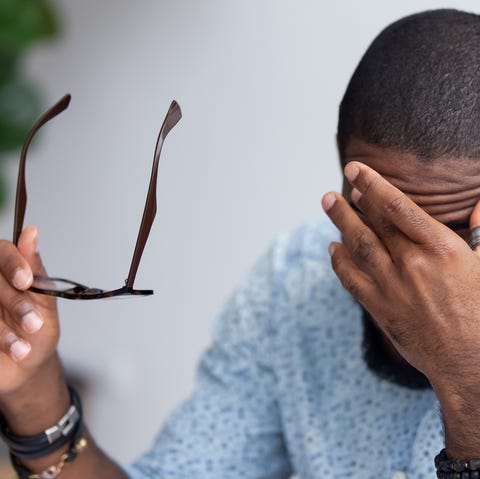COVID-19 is tricky. Experts are still learning the ins and outs of this virus, which was first detected in December 2019 in Wuhan, China.
Despite the ever-changing information that continues to surround the coronavirus, what the medical community does know, besides the fact that there are more than 10 million global COVID-19 cases, is that the virus can and has been linked to neurological issues.
In fact, a recent review published in the Annals of Neurology revealed that of hospitalized coronavirus patients, about half have experienced symptoms affecting the nervous system, including dizziness.
Other manifestations include loss of taste and smell, difficulty concentrating, seizures, strokes, and weakness. Experts also note that those infected may experience these issues prior to developing any fever, cough or respiratory problems, so it’s important to remain vigilant.
But what about dizziness specifically? What is dizziness, exactly? What does it feel like? What does it mean if you are dizzy? Is it normal? And how do you know that any dizziness you’re feeling may be linked to COVID-19?
Here are your answers.
What Causes Dizziness?

fizkes
Believe it or not, dizziness is a fairly common condition.

Subscribe to Men’s Health
SHOP NOW
The word dizziness, however, is often imprecise, says, Allen Towfigh, M.D., medical director of New York Neurology & Sleep Medicine, P.C., and attending physician at Weill Cornell Medical Center.
Dizziness can be used to describe a wide range of symptoms ranging from vertigo, where there is generally a sense of movement of the world surrounding you, to lightheadedness, which typically describes feeling faint.
Dizziness can also describe feelings of unsteadiness and balance disorders. “The probable cause for each of these symptoms depends upon the nature of the complaint and can be equally wide ranging, from medication side effects and dehydration to more serious heart arrhythmias or stroke,” he says.
Is Dizziness a Symptom of COVID-19?

DjelicS
One thing to consider is whether or not you are prone to dizziness or vertigo already.
If so, Sheri Dewan, M.S., M.D., a neurosurgeon at Northwestern Medicine Central DuPage Hospital, says there is no need to be overly concerned. Though, “if symptoms have dramatically changed in caliber—meaning frequency, length, occurring at different times of the day, trying normal treatments without resolve—then you should contact a physician, for imaging may be needed,” she says.
Dr. Towfigh adds: “Dizziness caused by COVID-19 will likely be accompanied by other signs or symptoms to suggest a COVID-19 infection, such as fevers, respiratory illness, or cough.”
COVID-19 or Not, What Should You Do If You’re Dizzy?

gremlin
According to Lenny Cohen, M.D., a Chicago-based neurologist and founder of Chicago Neurological Services, one of the first indicators of dizziness is experiencing a loss of balance.
To onlookers, he says, a dizzy spell might present as drunk. If this is you, it is important to sit or lie down to mitigate the risk of falling and call for help if symptoms persist or are accompanied by any cardiac or neurologic dysfunction, notes Dr. Towfigh.
“When lying down, you’ll also want keep your eyes closed until the feeling of dizziness and/or vertigo passes, and then arise and move slowly as to avoid inner ear disturbances in the canals,” says Dr. Dewan. “Any fast, quick movements can cause the inner ear system to become reactivated thereby causing recurrence of dizziness or vertigo.”
Dr. Cohen also adds that some IV fluids, specific medications, and vestibular therapy (exercise-based program to regain balance control) may also be used in an effort to rein in dizziness.
Prior to blindly getting tested for COVID-19, Dr. Cohen recommends discussing symptoms with your primary physician. Dee Banks, M.D., an infectious disease physician with Northeast Ohio Infectious Disease Associates in Youngstown, Ohio says this: “The virus is a parasite, it has to live on something. You stop the transmission by putting a gap between two things that it can’t jump to.”
Which is why doing the basics is still key, she says, and that includes wearing a mask, social distancing ,and washing your hands. She adds, “this is a new virus, but there is no reason to think that the old principles and practices of infectious diseases won’t continue to work.”
Source: Read Full Article
